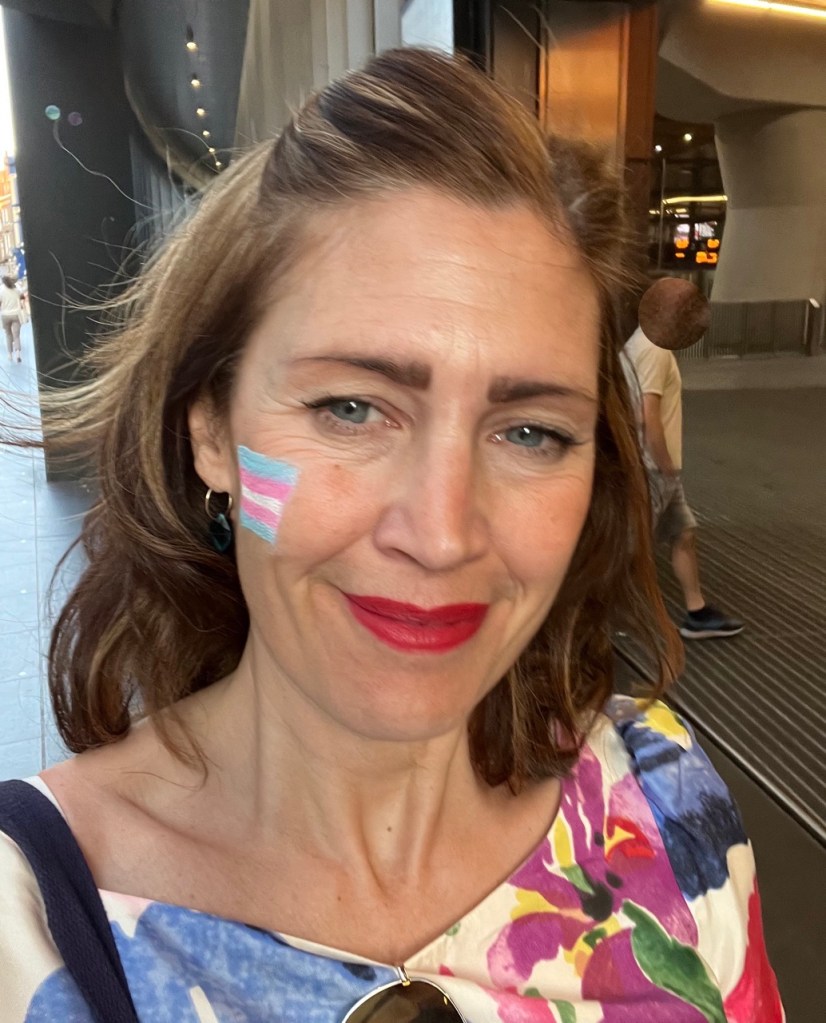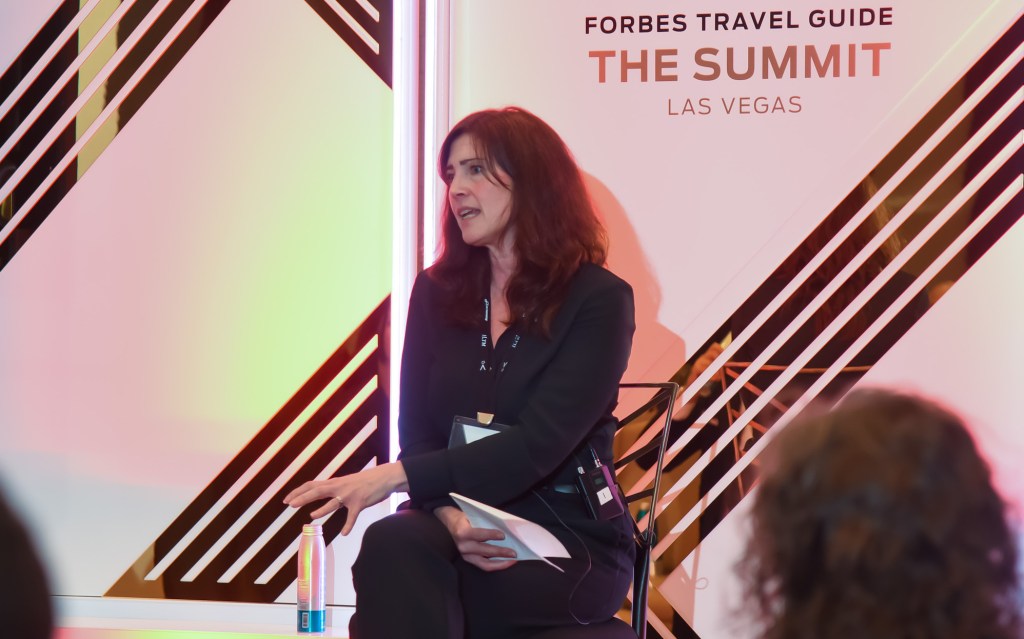I’m a cis woman but I spend my days educating on trans inclusion – here’s why

Aby Hawker founded her own trans inclusion consultancy firm – and says allies have a “crucial role” to play. (Supplied/PinkNews)
Eight years ago, I didn’t know anyone who was trans. I was running a small virtual agency specialising in healthcare when a client approached me to see if I would support her with a new venture.
The client was Dr Helen Webberley and the venture was GenderGP, a private health and wellbeing company providing support to gender diverse individuals.
I ran the communications there for six years. Despite the odd minor wobble, I was never overly daunted by the fact that this was a brand new area of communications or that, as a cis person, I had no first-hand experience of being trans. I just focused on applying my communications skills in the same way I would when working with any other client; learning all I could, listening to and working with people who did have first hand experience, and allowing that to guide my practice. I found the community to be incredibly welcoming and accepting as I began to forge a role as an active ally.
This is a role that I leaned fully into with the launch of my agency, TransMission PR, at the start of 2022. Conscious that I had built up a very specific set of skills in an area in which more and more brands were beginning to dip a toe – to greater and lesser degrees of success – I focused on creating a specialist consultancy dedicated to helping individuals, brands and organisations responsibly navigate this space.

There’s no denying we have our work cut out. With some media pumping out a disproportionate number of articles intended to demonise trans people and the Conservative government openly admitting to using trans people as part of a wider strategy to stoke fear and division, the counter narrative has to be robust. This is where allies can play a crucial role.
At its most fundamental level, allyship involves showing enough interest to gain a basic understanding of what is and what isn’t true, as well as what the intention is behind a particular narrative which is directly targeted at this minority group. Without this basic level of understanding, there is no reason to push back when misinformation and disinformation is pumped out. The result is that the problematic content just sits unchallenged as fact, when in reality it is anything but.
Communications pros in particular have a huge role to play in redressing the balance: They are managing clients’ budgets, advising them on how to engage with their audiences, supporting them in meeting their environmental, social and corporate governance commitments. For those wanting to demonstrate their credentials in this area, trans inclusion and awareness send a strong message that a company cares about doing what is right.

Of course, I appreciate that you are never going to bring everyone along on the journey. I am a realist as well as an optimist. To that end, I always apply the rule of thirds:
- a third of people will hate you
- a third will love you
- a third will be indifferent
It’s this final third that is the key. People are indifferent until they are no longer indifferent. The constant pushing out of negative narratives is being absorbed and that is having a real life impact on real people (hate crimes against gender diverse individuals rose 56% between 2021 and 2022).
This is why we need to remove the initial barrier and address the misconception that trans inclusion is all just a bit too difficult. It isn’t. It just requires a bit of awareness, some compassion and a gentle reminder that, if inclusivity is important to you, be inclusive.
We launched a free resource to mark the end of Pride month aimed at anyone with an interest in navigating trans awareness, because now the party is over, the real work needs to begin.
Aby Hawker is the CEO and Founder of TransMission PR, a communications consultancy which specialises in trans and non-binary inclusion and awareness.
How did this story make you feel?

